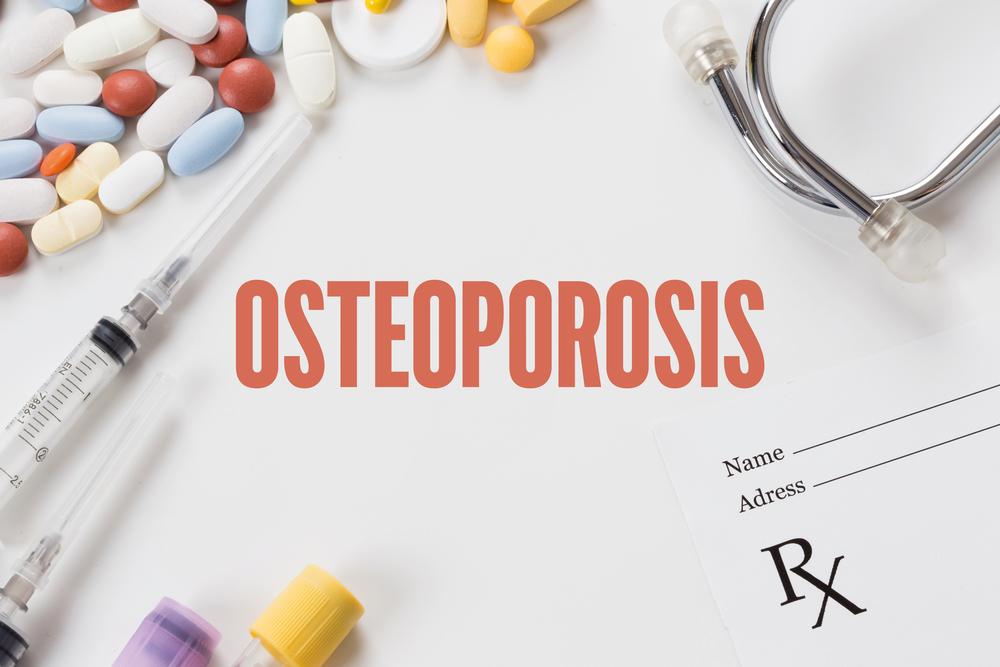Essential Health Factors That Increase the Risk of Osteoporosis and Bone Density Loss
This comprehensive article explores the top health conditions that increase the risk of osteoporosis and bone density decline. It covers hyperthyroidism, arthritis, diabetes, asthma treatments, and celiac disease, highlighting their impact on bone health and preventive strategies. Understanding these factors helps individuals and healthcare providers implement effective measures to reduce fracture risks and maintain strong bones as they age. Proper management, lifestyle adjustments, and regular screenings are key to preventing osteoporosis-related complications and ensuring a healthy, active life in later years.

Understanding the Key Health Conditions Linked to Osteoporosis and Bone Weakening
Osteoporosis is a prevalent age-related health concern characterized by weakened and brittle bones, significantly increasing the risk of fractures and mobility issues among older adults worldwide. This condition occurs when bone mineral density decreases, leading to fragile bones that can fracture easily—even from minor falls, coughing, or everyday activities. Recognizing the health factors that contribute to osteoporosis is essential for prevention and management. Several underlying health conditions and lifestyle factors significantly elevate the risk, requiring proper medical attention and lifestyle modifications.
Osteoporosis affects more than half of women over 50 and a considerable number of men in the same age group. As populations age globally, understanding and addressing these health conditions become crucial for improving quality of life and reducing healthcare burdens. Below, we explore the top health factors that contribute to increased osteoporosis risk, including hormonal imbalances, autoimmune diseases, metabolic disorders, respiratory conditions, and nutrient absorption issues.
1. Hyperthyroidism and Its Impact on Bone Health
One of the leading health contributors to osteoporosis is hyperthyroidism, a condition characterized by an overactive thyroid gland producing excessive thyroid hormones. The thyroid hormones play a vital role in regulating metabolism, but an excess accelerates various bodily processes, including bone turnover. Increased bone resorption surpasses bone formation, resulting in net bone loss over time.
Individuals with hyperthyroidism often exhibit symptoms such as weight loss, rapid heartbeat, heat intolerance, and nervousness. If untreated, this condition significantly accelerates bone density decline, increasing fracture risks. Monitoring thyroid function through blood tests like TSH, T3, and T4 levels is crucial for early detection and management. Medical treatments, including antithyroid medications, radioactive iodine, or surgery, can restore hormonal balance and help protect against osteoporosis progression.
Prevention strategies involve maintaining appropriate thyroid hormone levels, engaging in weight-bearing exercises, and ensuring adequate calcium and vitamin D intake to support bone health.
2. Arthritis and Its Role in Bone Fragility
Arthritis, especially autoimmune types like rheumatoid arthritis and lupus, contributes to bone weakening in several ways. Chronic inflammation associated with these conditions promotes osteoclast activity, leading to enhanced bone resorption. Moreover, joint damage and overall reduced physical activity due to pain or discomfort further contribute to bone density loss.
Many arthritis patients are prescribed corticosteroids and other medications that, while controlling inflammation, can impair bone-forming cells, increasing osteoporosis risk. Managing arthritis effectively through medical treatment, physical therapy, and lifestyle adjustments can mitigate these effects. Regular bone density assessments are recommended for patients with longstanding arthritis to assess their bone health status.
Maintaining a balanced diet rich in anti-inflammatory nutrients, engaging in safe physical activity, and avoiding smoking and excessive alcohol consumption are key preventive steps.
3. Diabetes and Bone Metabolism Disruption
Diabetes, particularly poorly controlled type 1 and type 2 diabetes, has been linked to impaired bone health. Elevated blood glucose levels affect the processes of bone formation and resorption by disrupting the activity of osteoblasts and osteoclasts, the cells responsible for building and breaking down bone tissue.
Research indicates that individuals with diabetes are more prone to fractures, particularly in the hips, spine, and wrists. Additionally, high blood sugar impairs the synthesis of collagen in bones and hampers calcium absorption, contributing to decreased bone strength. Delayed fracture healing is also common among diabetics, further complicating recovery and rehabilitation.
Managing blood glucose levels through medication, diet, and lifestyle modifications is vital for reducing osteoporosis risk in diabetics. Supplementing with calcium and vitamin D, engaging in weight-bearing exercises, and routine bone density monitoring are crucial preventive measures.
4. The Influence of Asthma and Its Treatments on Bone Density
While asthma itself does not directly cause bone loss, medications used to manage symptoms—particularly corticosteroids—are well-known contributors to decreased bone mineral density. Corticosteroids affect calcium absorption, inhibit osteoblast activity, and promote osteoclast-mediated bone resorption, all of which lead to weakened bones over time.
Patients with severe asthma often require prolonged corticosteroid therapy, which heightens their osteoporosis risk. Moreover, breathing difficulties may limit physical activity, leading to decreased mechanical stimulation essential for maintaining bone strength.
To balance asthma management and bone health, healthcare providers recommend using the lowest effective corticosteroid dose, exploring alternative treatments, and supplementing with calcium and vitamin D. Weight-bearing exercise, when feasible, also supports bone maintenance.
Celiac Disease's Impact on Calcium and Vitamin D Absorption
Celiac disease is an autoimmune disorder triggered by gluten ingestion, resulting in damage to the small intestine's lining. This damage impairs the absorption of essential nutrients, notably calcium and vitamin D, which are vital for healthy bone mineralization and density.
Consequently, untreated celiac disease frequently leads to metabolic bone disease and increased osteoporosis risk. Symptoms include gastrointestinal discomfort, weight loss, anemia, and fatigue, which may be mistaken for other conditions. Diagnosing celiac disease involves blood tests and intestinal biopsies, leading to a gluten-free diet.
Adherence to a strict gluten-free diet helps restore nutrient absorption, improving bone health over time. Supplementation with calcium and vitamin D, regular bone density assessments, and monitoring for osteoporosis symptoms are recommended for managing long-term health in celiac patients.
In conclusion, understanding the key health conditions that contribute to osteoporosis is essential for early intervention, effective management, and prevention. Regular health screenings, maintaining a balanced diet, engaging in weight-bearing exercises, and adhering to medical advice can significantly reduce the risk of osteoporosis and improve overall bone health across different populations.





